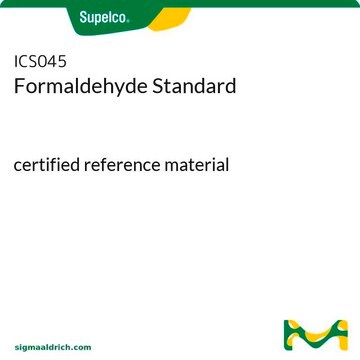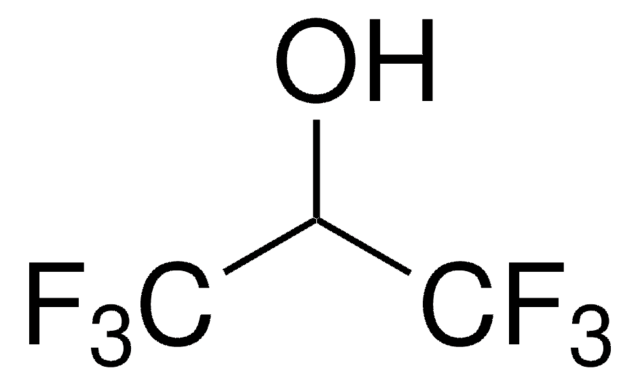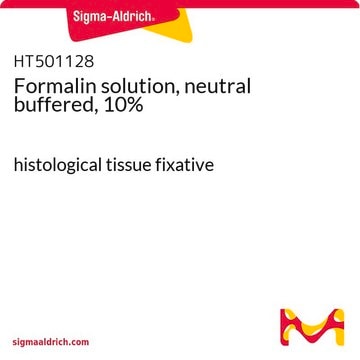252549
Formaldehyde solution
ACS reagent, 37 wt. % in H2O, contains 10-15% Methanol as stabilizer (to prevent polymerization)
Synonym(s):
Formalin
About This Item
Recommended Products
grade
ACS reagent
Quality Level
vapor density
1.03 (vs air)
vapor pressure
52 mmHg ( 37 °C)
52 mmHg ( 37 °C)
form
liquid
autoignition temp.
572 °F
contains
10-15% Methanol as stabilizer (to prevent polymerization)
concentration
36.5-38.0%
37 wt. % in H2O
impurities
≤0.006 meq/g Titr. acid
ign. residue
≤0.005%
color
APHA: ≤10
refractive index
n20/D 1.3765
solubility
water: soluble
density
1.09 g/mL at 25 °C (lit.)
anion traces
chloride (Cl-): ≤5 ppm
sulfate (SO42-): ≤0.002%
cation traces
Fe: ≤5 ppm
heavy metals: ≤5 ppm (by ICP-OES)
suitability
suitable for manufacturing use (Laboratory chemicals)
SMILES string
[H]C([H])=O
InChI
1S/CH2O/c1-2/h1H2
InChI key
WSFSSNUMVMOOMR-UHFFFAOYSA-N
Looking for similar products? Visit Product Comparison Guide
General description
Application
Physical form
also commonly purchased with this product
signalword
Danger
Hazard Classifications
Acute Tox. 2 Inhalation - Acute Tox. 3 Dermal - Acute Tox. 3 Oral - Carc. 1B - Eye Dam. 1 - Flam. Liq. 3 - Muta. 2 - Skin Corr. 1B - Skin Sens. 1 - STOT SE 1 - STOT SE 3
target_organs
Eyes,Central nervous system, Respiratory system
Storage Class
3 - Flammable liquids
wgk_germany
WGK 3
flash_point_f
132.8 °F - closed cup
flash_point_c
56 °C - closed cup
Choose from one of the most recent versions:
Already Own This Product?
Find documentation for the products that you have recently purchased in the Document Library.
Customers Also Viewed
Our team of scientists has experience in all areas of research including Life Science, Material Science, Chemical Synthesis, Chromatography, Analytical and many others.
Contact Technical Service












